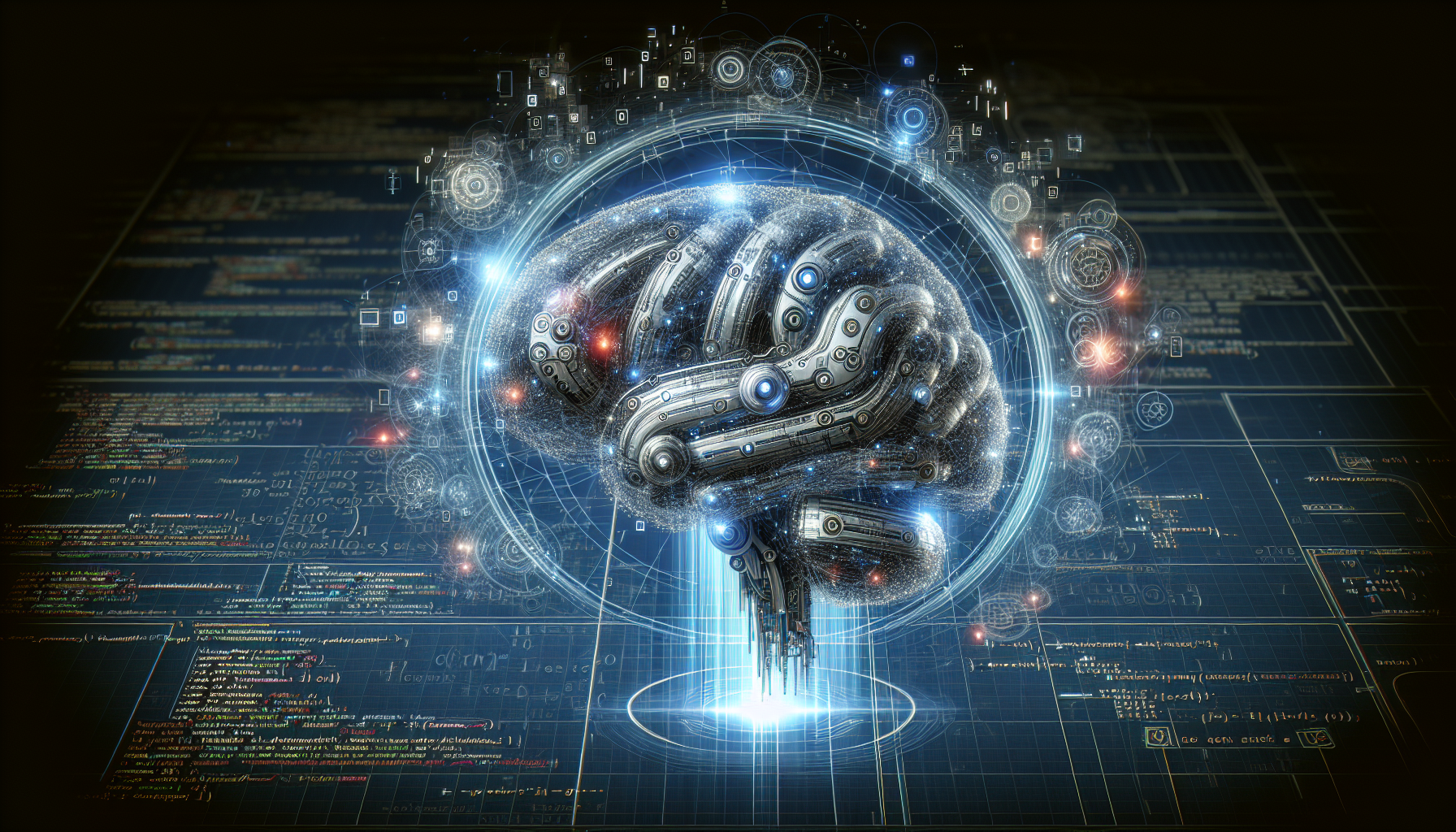If you’re interested in AI development and are wondering which programming libraries or frameworks are commonly used in the field, look no further! In this article, we’ll explore the top programming libraries and frameworks that are widely utilized by developers working on AI projects. From popular options like TensorFlow and PyTorch, to lesser-known gems such as scikit-learn and Caffe, we’ll provide you with a comprehensive overview that will help you navigate the exciting world of AI development. So, get ready to discover the tools that can fuel your AI aspirations and take your projects to new heights!
Top Programming Libraries and Frameworks for AI Development
When it comes to AI development, programming libraries and frameworks play a crucial role in simplifying the implementation of complex algorithms and models. With the ever-increasing demand for AI applications, developers have created a wide range of libraries and frameworks to cater to different programming languages. In this article, we will explore some of the top programming libraries and frameworks for AI development in Python, Java, Ruby, C++, and R.

Python Libraries
Python has emerged as one of the most popular programming languages for AI development. Its simplicity, readability, and extensive community support have made it a preferred choice for data scientists and AI researchers. Here are some of the top Python libraries for AI development:
TensorFlow
TensorFlow is an open-source library developed by Google that provides a flexible and efficient framework for building and training machine learning models. It offers a wide range of tools and resources that enable developers to create neural networks, deep learning models, and other AI applications with ease. TensorFlow’s vast collection of pre-built models makes it an ideal choice for beginners and experts alike.
PyTorch
PyTorch is another powerful Python library widely used for AI development. Developed by Facebook, it focuses on providing dynamic computational graphs and a smooth debugging experience. PyTorch’s intuitive interface and extensive set of libraries make it easier to experiment with complex neural networks and implement cutting-edge deep learning algorithms.
Scikit-learn
Scikit-learn is a popular machine learning library that provides a rich set of tools for data preprocessing, model selection, and evaluation. It offers a wide range of algorithms and utilities for tasks such as classification, regression, clustering, and dimensionality reduction. Scikit-learn’s user-friendly API and detailed documentation make it a go-to library for beginners entering the field of AI.
Keras
Keras is a high-level neural networks API written in Python that works on top of either TensorFlow or Theano. It allows developers to create deep learning models with minimal code and provides an easy-to-use interface for building complex architectures. Keras’ simplicity and flexibility make it a preferred choice for rapid prototyping and experimentation.
Theano
Theano is a Python library that allows developers to define, optimize, and evaluate mathematical expressions involving multi-dimensional arrays. It is often used as a backend for other deep learning libraries like Keras and provides a high level of control over the computations. Theano’s efficient symbolic representation of mathematical expressions makes it well-suited for both research and production-level AI development.
Caffe
Caffe is a deep learning framework developed by Berkeley AI Research (BAIR) and community contributors. It is known for its speed and efficiency, making it a popular choice in industry settings. Caffe’s modular architecture allows for easy experimentation and deployment of deep neural networks for tasks like image classification, object detection, and segmentation.
MXNet
MXNet is a flexible and efficient deep learning framework that supports both imperative and symbolic programming paradigms. It offers a wide range of features and tools for building and training neural networks, ranging from simple models to large-scale distributed systems. MXNet’s flexible interface and support for different programming languages make it a versatile choice for AI development.
Java Libraries
Java is a widely-used programming language known for its robustness and cross-platform compatibility. Although not as popular as Python in the AI community, Java offers several libraries and frameworks that can be used for AI development. Here are some of the top Java libraries for AI development:
Deeplearning4j
Deeplearning4j is an open-source, distributed deep learning library for the Java Virtual Machine (JVM). It provides a set of tools and components for composing deep neural networks and supports popular algorithms such as convolutional networks, recurrent networks, and variational autoencoders. Deeplearning4j’s compatibility with the JVM ecosystem makes it a viable choice for building AI applications in Java.
DL4J
DL4J, short for DeepLearning4J, is an open-source deep learning library designed to integrate with Java and the JVM ecosystem seamlessly. It offers a wide range of features for training and deploying deep neural networks, including support for distributed computing and GPU acceleration. DL4J’s focus on scalability and performance makes it suitable for large-scale AI projects.
Weka
Weka is a popular machine learning library for Java that provides a wide range of algorithms and tools for data preprocessing, classification, regression, clustering, and visualization. It offers a user-friendly interface and supports the development of AI applications through its Java API. Weka’s extensive documentation and active community make it an excellent choice for both beginners and experienced AI developers in Java.
Java-ML
Java-ML is an open-source machine learning library designed for simplicity and ease of use. It offers a comprehensive set of algorithms and utilities for various tasks, including classification, regression, clustering, and more. Java-ML’s lightweight nature and straightforward API make it an ideal choice for developers looking for a simple yet effective library for AI development in Java.

Ruby Libraries
Ruby, known for its simplicity and readability, also has several libraries and frameworks that can be used for AI development. While the Ruby ecosystem for AI might not be as extensive as Python’s, these libraries can still be valuable for certain tasks. Here are some of the top Ruby libraries for AI development:
Ruby-AI
Ruby-AI is a collection of libraries and tools designed to facilitate AI development in Ruby. It offers a wide range of modules for tasks such as natural language processing, neural networks, and genetic algorithms. Ruby-AI’s modular structure and well-documented API make it suitable for developers interested in exploring AI capabilities in Ruby.
RubyML
RubyML is a Ruby library that provides a simple and intuitive interface for working with machine learning algorithms. It offers a collection of algorithms for tasks such as classification, regression, clustering, and feature selection. RubyML’s focus on simplicity and ease of use make it a suitable choice for developers looking to incorporate machine learning capabilities into their Ruby projects.
Machine Learning for Ruby (ML-Ruby)
ML-Ruby is a comprehensive machine learning library for Ruby that offers a wide range of algorithms and utilities for data analysis and predictive modeling. It provides support for various tasks such as classification, regression, clustering, dimensionality reduction, and more. ML-Ruby’s extensive set of algorithms and its integration with existing Ruby libraries make it a valuable resource for AI development in Ruby.

C++ Libraries
C++ is known for its performance and efficiency, making it a popular choice for computationally intensive tasks like AI development. Although AI development in C++ often involves writing code from scratch, several libraries can simplify the process. Here are some of the top C++ libraries for AI development:
Caffe2
Caffe2 is the successor to Caffe and is a lightweight and modular deep learning framework developed by Facebook. It provides efficient implementations of popular algorithms and models and supports seamless deployment on mobile and embedded devices. Caffe2’s focus on speed and efficiency makes it well-suited for use cases that require real-time AI capabilities.
Torch
Torch is a widely-used open-source machine learning library and a scientific computing framework. It provides extensive support for deep learning and offers a wide range of tools and models for AI development. Torch’s flexible architecture and rich ecosystem of packages make it a popular choice for researchers and developers working on AI projects.
Chainer
Chainer is a flexible and intuitive deep learning framework designed to enable rapid prototyping and experimentation. It allows developers to define, train, and deploy deep learning models with ease, making it suitable for research and rapid development. Chainer’s dynamic computational graph and seamless integration with NumPy make it a preferred choice for AI development in C++.
Darknet
Darknet is an open-source neural network framework written in C and CUDA. It is known for its efficiency and has gained popularity in the field of computer vision. Darknet supports a wide range of object detection and classification algorithms, making it ideal for tasks like image recognition and autonomous navigation. Darknet’s lightweight design and C API make it a popular choice for developers seeking high-performance AI solutions.
Eigen
Eigen is a C++ template library for linear algebra that provides efficient implementations of various numerical operations. It is often used in combination with other libraries for AI development projects that require complex mathematical computations. Eigen’s focus on performance and easy integration with existing C++ projects make it an excellent choice for AI development in C++.
MLPack
MLPack is a C++ machine learning library that provides a collection of algorithms and tools for data analysis and machine learning tasks. It offers a modular framework for building models and supports a wide range of algorithms, including dimensionality reduction, clustering, regression, and more. MLPack’s emphasis on scalability and speed makes it a suitable choice for AI applications that require efficient processing of large datasets.

R Libraries
R, known for its statistical capabilities, also has a vibrant ecosystem of libraries and frameworks for AI development. These libraries provide a wide range of statistical and machine learning algorithms for data analysis and modeling. Here are some of the top R libraries for AI development:
Caret
Caret is a widely-used machine learning library in R that provides a unified interface for training and testing predictive models. It offers a comprehensive set of tools for data preprocessing, model selection, and evaluation, making it a go-to library for AI development in R. Caret’s versatility and ease of use make it suitable for both beginners and experienced R developers.
RandomForest
RandomForest is an R library that implements the random forest algorithm for classification and regression tasks. It allows for the creation of an ensemble of decision trees and provides efficient methods for parallel processing. RandomForest’s simplicity and ability to handle high-dimensional data make it a popular choice for AI applications in R.
TensorFlow
TensorFlow, although predominantly associated with Python, also provides an R interface that allows developers to leverage its powerful deep learning capabilities. The R package of TensorFlow provides a wide range of APIs and tools for building, training, and deploying deep learning models. TensorFlow’s extensive support for parallel computing and distributed training makes it a valuable asset for AI developers using R.
h2o
h2o is an open-source machine learning platform that provides a simple and user-friendly interface for AI development in R. It offers a wide range of algorithms and tools for tasks such as classification, regression, clustering, and anomaly detection. h2o’s scalability and distributed computing capabilities make it suitable for handling large datasets and building production-ready AI models.
pROC
pROC is an R package that provides tools for analyzing and visualizing receiver operating characteristic (ROC) curves. It offers functions for calculating and comparing different performance measures and allows for easy evaluation of classification models. pROC’s focus on ROC analysis makes it a valuable resource for AI developers working on tasks that require evaluating model performance and making informed decisions based on the results.
In conclusion, the field of AI development offers a plethora of programming libraries and frameworks for developers to choose from. Whether you are using Python, Java, Ruby, C++, or R, there are options available to suit your programming language preference and specific AI development needs. The key is to select the libraries and frameworks that align with your project requirements and leverage their capabilities to create innovative AI applications. With the right tools at your disposal, you can unlock the full potential of AI and drive impactful solutions in various domains.







Leave a Reply